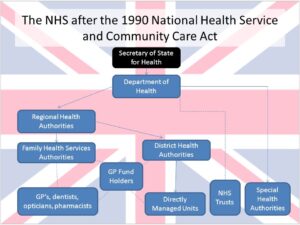Exploring the Costs of Private Health Insurance: A Comprehensive Guide
Introduction
Private health insurance is a valuable tool for individuals seeking enhanced access to healthcare services and greater control over their medical treatment. However, understanding the cost of private health insurance is essential for making informed decisions about coverage. In this comprehensive article, we will delve into the world of private health insurance, covering the factors that influence its cost, key considerations, and practical tips for finding the right coverage that aligns with your needs and budget.
The Significance of Private Health Insurance
Private health insurance offers individuals the option to receive healthcare services beyond what is available through publicly funded healthcare systems. It provides the flexibility to choose healthcare providers, access treatments faster, and receive specialized care. Understanding the costs associated with private health insurance is fundamental to making well-informed choices about your healthcare coverage.
Key Factors Influencing the Cost of Private Health Insurance
The cost of private health insurance is influenced by various factors. Understanding these factors is critical for assessing the expense associated with obtaining coverage:
1. Coverage Type
The type of coverage you choose significantly impacts the cost of private health insurance. Basic coverage may include in-patient and out-patient care, while more comprehensive plans encompass additional benefits such as dental care, mental health support, and maternity care. The more extensive the coverage, the higher the premium.
H2: Assessing Coverage Types
Evaluating your healthcare needs is crucial when selecting the appropriate coverage type. You should align the benefits offered with your specific requirements.
2. Age
Age plays a pivotal role in determining the cost of private health insurance. Younger individuals typically pay lower premiums, as they are generally healthier and require fewer medical services. As individuals age, their healthcare needs increase, leading to higher premiums.
H2: The Impact of Age on Premiums
Recognizing how age influences insurance costs is essential for assessing your long-term healthcare expenses. It’s vital to consider the trajectory of your premiums as you grow older.
3. Medical History
Your medical history and current health status are significant cost drivers. Individuals with pre-existing conditions or a history of chronic illnesses may face higher premiums due to the increased likelihood of medical expenses.
H2: Assessing the Impact of Medical History
Understanding how your medical history affects private health insurance costs is essential for managing your healthcare expenses effectively. Some policies may require medical underwriting or impose exclusions for pre-existing conditions.
4. Geographic Location
The cost of private health insurance can vary based on your geographical location. Urban areas often have higher healthcare costs, which can translate into more expensive insurance premiums.
H2: The Role of Geographic Location
Being aware of how your location affects insurance costs can help you make informed decisions about your coverage. Consider the healthcare infrastructure and cost of services in your region.
5. Deductibles and Co-Payments
The deductible and co-payment amounts you choose significantly impact your premium costs. Higher deductibles and co-payments generally result in lower premiums, as they require policyholders to cover a larger portion of their medical expenses.
H2: The Impact of Deductibles and Co-Payments
Understanding the relationship between deductibles, co-payments, and premiums is vital for finding cost-effective private health insurance. Consider your financial situation and risk tolerance when selecting these components.
6. Lifestyle Factors
Lifestyle factors, such as smoking or engaging in high-risk activities, can influence private health insurance costs. Insurers may charge higher premiums to individuals who engage in behaviors that increase the likelihood of health issues.
H2: Evaluating Lifestyle Factors
Assessing how your lifestyle affects insurance costs is essential for managing your premiums. Making healthy choices and adopting positive behaviors can lead to lower insurance expenses.
7. Waiting Periods
Some private health insurance policies may impose waiting periods before coverage begins. Understanding waiting periods is essential for knowing when you can access specific benefits.
H2: Understanding Waiting Periods
Awareness of waiting periods is crucial for planning your healthcare coverage. These periods may vary between insurers and policies, so it’s essential to clarify the terms before making a decision.
Types of Private Health Insurance
Private health insurance offers various types of policies, each tailored to specific healthcare needs:
1. Basic Health Insurance
Basic health insurance typically covers essential medical services, including in-patient and out-patient care. It serves as a foundation for more comprehensive coverage.
2. Comprehensive Health Insurance
Comprehensive health insurance provides a wide range of benefits, including in-patient and out-patient care, diagnostic tests, specialist consultations, maternity care, dental care, and mental health support.
3. Hospital-Only Coverage
Hospital-only coverage focuses on in-patient care, offering protection for expenses related to hospital stays and surgeries. It is suitable for individuals who want to minimize premiums and primarily require coverage for significant medical events.
4. Extras and Add-Ons
Many private health insurance policies offer extras and add-ons, allowing policyholders to customize their coverage. These additional options may include dental care, optical care, physiotherapy, or alternative therapies.
5. Family Policies
Family policies provide coverage for multiple family members under a single plan, often at a more cost-effective rate compared to individual policies. They can encompass in-patient and out-patient care, maternity care, and child-specific benefits.
Practical Tips for Finding the Right Private Health Insurance
Securing the right private health insurance requires careful planning and consideration. Here are some practical tips to help you navigate this process effectively:
1. Assess Your Healthcare Needs
Evaluate your healthcare needs, including the level of coverage required and any specific medical conditions or treatments you anticipate. Align your insurance choice with your unique health requirements.
2. Compare Multiple Providers
Obtain quotes from multiple private health insurance providers to compare policies, premiums, and coverage terms. Pay attention to the details of each policy and select one that aligns with your budget.
3. Consider Group Policies
If you have access to group policies through an employer or organization, explore this option. Group policies can often provide cost-effective coverage with added benefits.
4. Review Waiting Periods
Understand waiting periods for specific benefits and conditions. Plan your coverage and healthcare accordingly to ensure timely access to the necessary services.
5. Seek Professional Advice
Consider consulting with an insurance broker or specialist who can assist you in finding the most suitable private health insurance coverage. Their expertise can help you make well-informed decisions.
6. Maintain a Healthy Lifestyle
Adopt a healthy lifestyle by making positive choices such as quitting smoking, staying active, and eating a balanced diet. These lifestyle changes can reduce the risk of health issues and lower insurance costs.
Conclusion
Private health insurance offers individuals the opportunity to secure enhanced access to healthcare services and greater control over their medical treatment. By understanding the key factors that influence the cost of private health insurance, considering the different policy types, and following practical tips, individuals can make informed choices about their healthcare coverage. Private health insurance is a valuable tool for ensuring comprehensive healthcare and peace of mind, allowing individuals to focus on their well-being with confidence.



